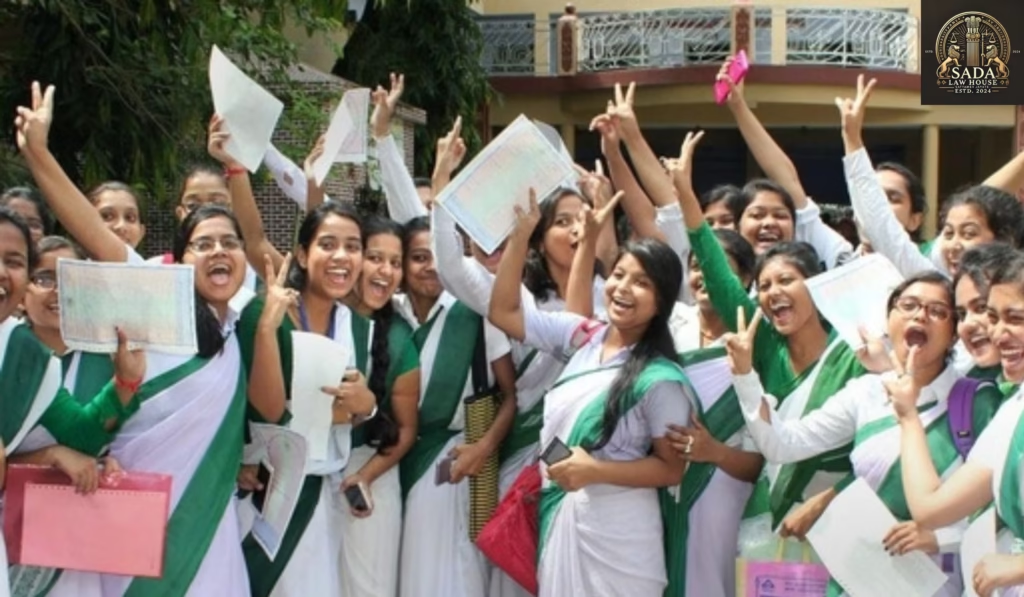Madras High Court Seeks Centre’s Stand on Uniform Civil Code in Tamil Nadu
Trending Today LEGAL JOB OPPORTUNITY AT PINK SAMURA LEGAL JOB OPPORTUNITY AT AGROSTAR Madras High Court Seeks Centre’s Stand on Uniform Civil Code in Tamil Nadu INTERNSHIP OPPORTUNITY AT PEEPALCO Uttarakhand High Court Orders Urgent Action on Prison Remissions for Life-Term Convicts, Pushing Prison Reform Custodial Death of Somnath Suryawanshi: Bombay High Court Urged to Order Court-Monitored SIT Probe One Nation, One Election: A Constitutional Reform or Threat to India’s Federalism? Madras High Court Rules False Sexual Allegations as Mental Cruelty, Grants Divorce to Husband President Approves Inquiry Into Former CJI D Y Chandrachud Over Alleged Misuse of Power Bokaro Launches Mobile Land Court to Deliver Justice in Rural Jharkhand Madras High Court Seeks Centre’s Stand on Uniform Civil Code in Tamil Nadu Kashish jahan 16 June 2025 The Madras High Court has asked the Central Government to clarify its stand on implementing the Uniform Civil Code (UCC) in Tamil Nadu. Explore how this landmark case could influence personal law reform and constitutional rights in India. Introduction: A Legal Turning Point for Tamil Nadu In a significant move, the Madras High Court is reviewing a petition demanding the implementation of a Uniform Civil Code (UCC) in Tamil Nadu. The petitioner argues that the absence of a UCC violates Article 44 of the Indian Constitution, which encourages the state to secure a uniform civil code for all citizens. This case has now drawn national attention as the Court has requested the Central Government to clearly state its position, raising critical questions about religious freedom, personal laws in India, and constitutional equality. What Is the Uniform Civil Code (UCC)? The Uniform Civil Code refers to a common set of laws governing marriage, divorce, inheritance, adoption, and other civil matters regardless of religion. Although Article 44 promotes the idea of a UCC, India currently follows different personal laws for various communities, creating a complex legal landscape. High Court’s Focus on Constitutional Clarity Judicial Push for Personal Law Reform The Madras High Court’s intervention signals a possible shift from political debate to constitutional scrutiny. The Court has asked the Centre to clarify whether it plans to introduce a UCC in Tamil Nadu, a move that could shape the future of family law reform across India. Why Article 44 Matters Article 44 of the Constitution is part of the Directive Principles of State Policy, which, though not enforceable by courts, act as guiding principles for governance. The petition claims that the current legal system’s inconsistency with Article 44 leads to inequality in civil rights, especially in matters like inheritance and marriage. Religious Freedom vs. Legal Uniformity Balancing Individual Rights and Community Practices The UCC debate is deeply rooted in the tension between religious freedom and equal rights. Implementing a UCC could promote gender equality and legal uniformity, but critics argue it may infringe on minority rights and cultural practices. Potential Impact on India’s Legal Framework A Landmark Case for Civil Law in Tamil Nadu This petition could serve as a test case for the viability of implementing a Uniform Civil Code in a diverse and multi-religious society like India. If the Centre supports the move, it may trigger broader discussions on national civil law reform. Judiciary’s Role in Social Reform The Court’s cautious yet firm approach highlights the judiciary’s growing role in nudging political accountability on long-pending social reforms. This case could set a precedent, encouraging other states and courts to revisit the UCC debate with fresh legal insight. Conclusion: Will the UCC Debate Gain Momentum? As the Madras High Court awaits the Centre’s response, the outcome of this case could redefine India’s approach to personal laws. It reflects a growing demand to reconcile constitutional directives with the realities of a pluralistic society. Whether this leads to actual legislative action remains to be seen, but the conversation around the Uniform Civil Code in Tamil Nadu is far from over. Leave a Reply Cancel Reply Logged in as Sada Law. Edit your profile. Log out? Required fields are marked * Message* Case Laws Supreme Court Affirms Right to Anticipatory Bail Across States in Matrimonial Disputes: Priya Indoria v. State of Karnataka (2023) Sada Law • June 13, 2025 • Case law • No Comments Supreme Court Rules on Governor’s Limited Discretion to Withhold Assent and Summon Punjab Legislative Assembly | State of Punjab v. Principal Secretary (2023) Sada Law • June 13, 2025 • Case law • No Comments Supreme Court Judgment on Chargesheets: Not Public Documents, No Mandatory Online Upload by Investigating Agencies | Saurav Das v. Union of India (2023) Sada Law • June 13, 2025 • Case law • No Comments 1 2 3 … 5 Next »
Madras High Court Seeks Centre’s Stand on Uniform Civil Code in Tamil Nadu Read More »


